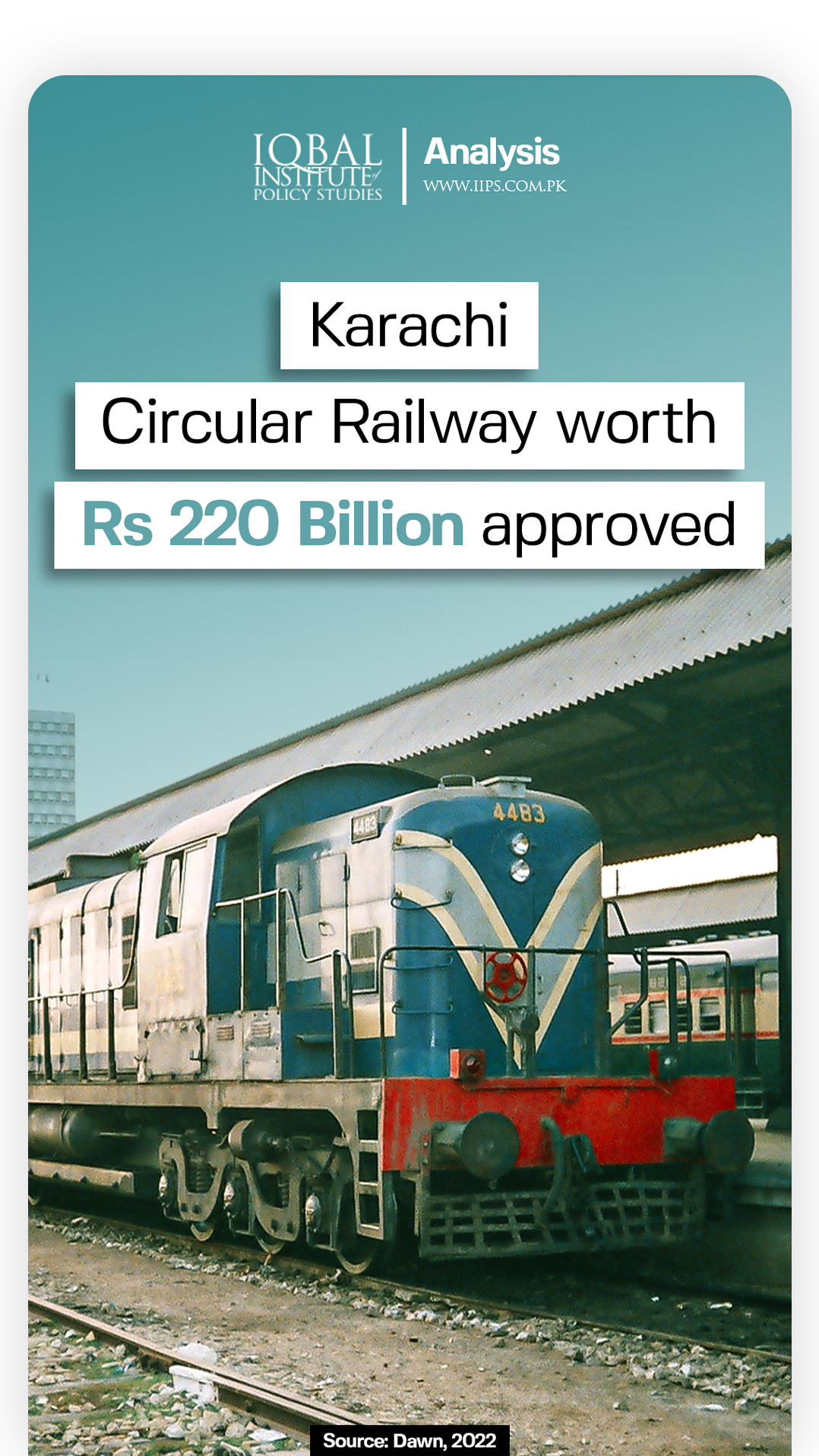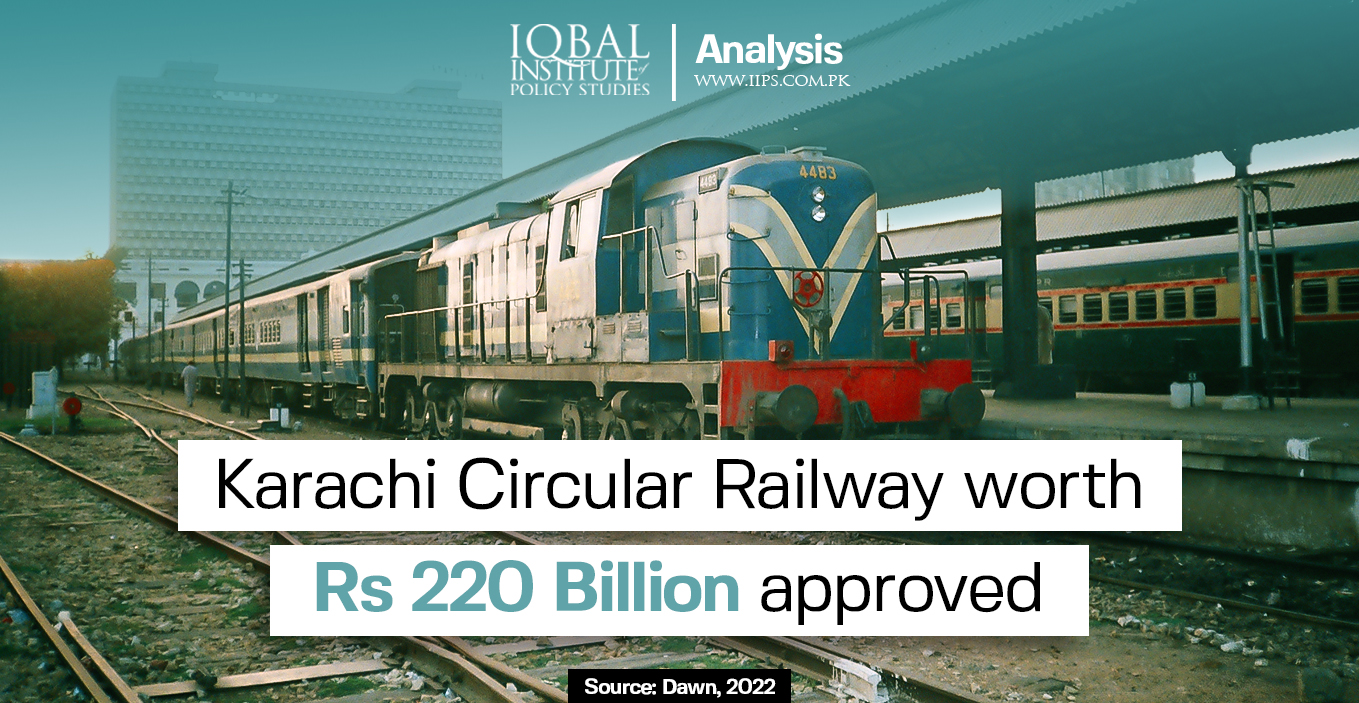The Karachi Circular Railway (KCR) is set to become a public-private partnership under a decision taken by the Public-Private Partnership Authority (P3A). The private sector will finance, develop, and operationalise the project on commercial lines, with the government sharing 40% of the cost at Rs 80-90 billion, whereas the total project cost is estimated to be around Rs 201 billion. The government also suggested that the Railways Board should release 13 properties to the project for 99 years on lease, which would enable it to share profits in the project. However, if the private sector disagrees, the government will give funding under the Public Sector Development Program (PSDP). The return on that funding would be directed to the Federal Government.
Being the largest city of Pakistan with a population of 25 million, Karachi faces innumerable challenges of water supply, public transport, waste disposal, functional drainage system, pollution, and illegal settlements. Many strategies and schemes have been devised to tackle these challenges; however, no tangible success can be seen in all the mentioned areas. Under the prime minister’s Karachi Transformation Plan (KTP), more than 100 projects have been launched to raise the living standards of the city’s residents and provide economic opportunities to migrants. The Karachi Circular Railway (KCR) project will bring much needed economic benefits in terms of reduced vehicle operation costs, environmental protection, reduced accidents, time savings, and contribution towards gender equality. The project will provide an affordable and reliable transport system to the residents of Karachi.
An effective urban transportation system can increase business productivity, enhance the accessibility of labour and job force, open avenues for new businesses, and increase supply chain connectivity. Businesses can reach broader markets and experience increased employee productivity due to reduced travel times. An effective transport system also provides a larger pool of employees to businesses and enhances their direct access to previously inaccessible opportunities. Lastly, quick and easy access to materials and supplies translates into faster service delivery to customers.



Leave a Reply